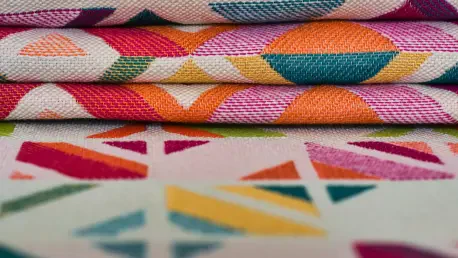The Italian textile machinery industry stands at a crossroads, facing both challenges and opportunities as it seeks to reaffirm its global leadership. Recent data indicate a concerning trend, showing an 8% decline in production from the previous year, with exports also dropping by 9%. These figures reflect broader economic uncertainties impacting the global textile sector, where geopolitical tensions and protectionist policies in key markets, such as the United States, create obstacles for sustained growth. Despite these setbacks, Italy’s textile machinery sector remains a critical player in the global market, with major export destinations including China, Turkey, India, and the United States. The industry, composed of around 300 manufacturers employing over 12,500 people, is renowned for its high-quality and technologically reliable products, a status underscored by its significant export rate of 86%. Maintaining this position, however, requires a focused strategy to protect and enhance Italy’s “Made in Italy” brand amid increasingly difficult global conditions.
Prioritizing “Made in Italy” in a Global Context
The preservation and promotion of the authentic “Made in Italy” label stand as a cornerstone of Italy’s textile machinery strategy in these challenging times. This involves leveraging the nation’s historical strengths in creativity, skilled craftsmanship, and innovation, elements that have long defined Italy’s competitive edge. During the 80th anniversary of the Association of Italian Textile Machinery Manufacturers (ACIMIT), industry leaders emphasized the crucial role of these attributes in navigating the economic shifts reshaping the international landscape. The assembly’s discussions also highlighted the importance of continued innovation, especially in advancing sustainable and low-environmental-impact solutions. As companies strive to enhance their competitiveness on a global scale, they must focus on internationalization and sustainable practices. The industry’s commitment to these values ensures that Italian textile machinery remains synonymous with excellence and high standards in the global marketplace.
Innovation and Sustainability as Key Drivers
Italian textile machinery manufacturers are increasingly turning to innovation and sustainability as key drivers for future growth. The push towards environmental stewardship is not merely a trend but a vital component of maintaining market relevance and consumer appeal. As the world grows more conscious of environmental impacts, industries are pressed to innovate in ways that reduce ecological footprints. Italian manufacturers have been harnessing cutting-edge technologies to develop machinery that meets the rising demand for more sustainable production methods. The focus is on creating solutions that are both technologically advanced and environmentally friendly, thereby underscoring Italy’s role as a leader in innovation. By integrating these principles into their operations, Italian textile firms are better positioned to adapt to regulatory changes and consumer preferences, ensuring long-term success.
Overcoming Global Challenges through Strategic Adaptation
The Italian textile machinery industry is at a pivotal moment, facing both hurdles and opportunities in its quest to reaffirm global dominance. Recent statistics show an 8% drop in production compared to the previous year, coupled with a 9% decrease in exports. These declines highlight broader uncertainties impacting the global textile market, where geopolitical tensions and protectionist policies, especially in significant markets like the United States, pose challenges to growth. Nevertheless, Italy’s textile machinery sector remains a vital player internationally, with key export markets such as China, Turkey, India, and the U.S. The industry, consisting of about 300 manufacturers and employing over 12,500 individuals, is acclaimed for producing high-quality, technologically advanced products, evidenced by its impressive 86% export rate. To maintain its standing, the industry must adopt a strategic approach to safeguard and promote the “Made in Italy” brand amid increasingly challenging global conditions.









